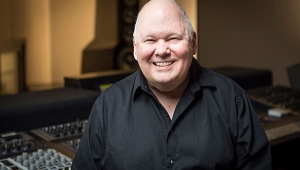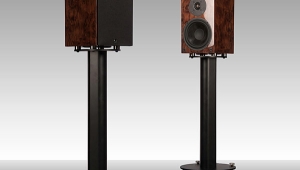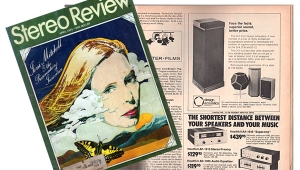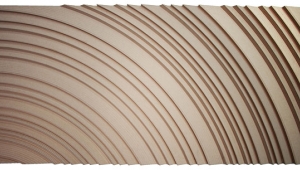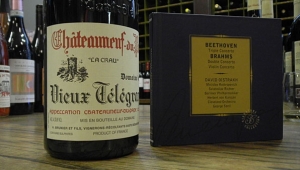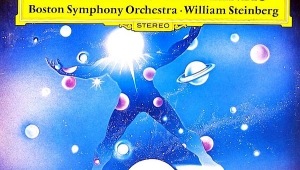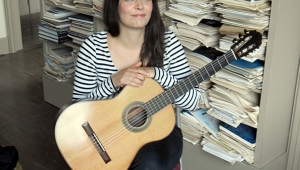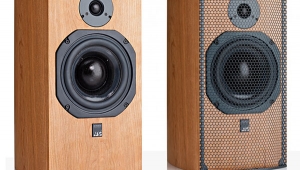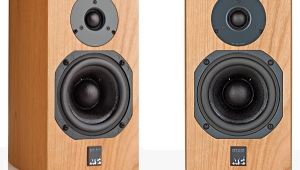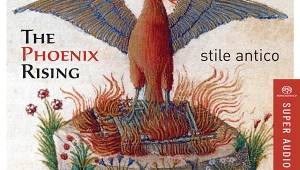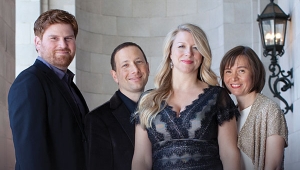| Columns Retired Columns & Blogs |
The Fifth Element #46
Another gosh-darn write-in competition! Sorry! They're like peanuts (or Campari and tonics). It's almost impossible to stop at just one.
Footnote 1: For many, including this writer, the definitive version of "Hallelujah" is the late Jeff Buckley's, from Grace (Columbia CK 575381994).—John Atkinson
This write-in competition is more narrowly focused than the one in the April 2007 issue (and therefore, perhaps, easier to enter). What inspired it was listening to Jackson Browne's "Fountain of Sorrow" and musing about how finely crafted a song it is. "Fountain of Sorrow" has a beginning, a middle, and an end. It tells a story. It has a point of view, an authorial tone (an attitude toward its subject matter), and, for lack of a better word, a philosophy. And the seeming incongruity between its bouncy rhythm and upbeat melody, and the tone of regret and grief over lost love, gives the song its backbone and its staying power.
 People who know me know that I am prone to enthusiasms. But I also think that I have my feet on the ground. "Fountain of Sorrow" is not quite on the level of craft of Richard Strauss's Hesse settings in Four Last Songs, but it sure is light-years ahead of Boz Scaggs' "Lido Shuffle." My fertile imagination easily can hear in its mind's ear Ensemble Amarcord singing "Fountain of Sorrow," a cappella in a mixed program of classical and popular works. In fact, I shall suggest just that to their US manager, Phillip Truckenbrod. (If Ensemble Amarcord is performing anywhere near you, it would be criminal to miss them. )
People who know me know that I am prone to enthusiasms. But I also think that I have my feet on the ground. "Fountain of Sorrow" is not quite on the level of craft of Richard Strauss's Hesse settings in Four Last Songs, but it sure is light-years ahead of Boz Scaggs' "Lido Shuffle." My fertile imagination easily can hear in its mind's ear Ensemble Amarcord singing "Fountain of Sorrow," a cappella in a mixed program of classical and popular works. In fact, I shall suggest just that to their US manager, Phillip Truckenbrod. (If Ensemble Amarcord is performing anywhere near you, it would be criminal to miss them. )
What this competition is about is finding five songs from what I will loosely call the Rock Era (written anywhere, but only since 1954) that, in craftsmanship, musicality, intelligence, and emotional impact, can give the lieder and chanson traditions a run for their money. What are the Great Art Songs of the Rock Age? Here are the rules:
1) Entries must be received by February 29, 2008, at stletters@sourceinterlink.com with the subject line "5 Songs."
2) The list must consist of five songs written anywhere since January 1, 1954. In cases of doubt, the copyright date, or the date of release of the song's first authorized commercial recording, will be considered the decisive factor, unless there is compelling evidence that a song was written before 1954, but spent years or decades in a desk drawer. Musical settings written since January 1, 1954, of texts predating that date, may be submitted (eg, poems by Donne or Shakespeare). Later performances of music written before 1/1/54, such as Jimi Hendrix's "Star-Spangled Banner," do not qualify.
3) The songs must have been written for the popular market and not the art market. To give two examples, Jacques Brel's songs are popular, while Ned Rorem's are not. Preference in judging will be exercised in favor of songs written to be popular recordings, rather than written as part of a musical comedy or for recitals. The spirit of the competition is to highlight exceptional songs by popular, rock, country, blues, or folk composers such as Jackson Browne, rather than "serious" composers such as Leonard Bernstein.
4) Judging will be on the basis of the creativity and originality of the compilation of the lists. The nominated songs will be judged according to their musical and literary merit—that is, as songs, not as performances. Please refer to the text above regarding "Fountain of Sorrow." Hint: "Peggy Sue" or "Smells Like Teen Spirit" might win a different competition, but not this one. Marketplace success or influence on later composers will be given some but not great weight.
5) Unless John Atkinson lends a hand, judging will be by John Marks.
6) The 12 winners selected will receive a CD of their choice from the Stereophile online store.
Here is my list:
1) "If You Could Read My Mind," Gordon Lightfoot (1969). "Just like an old time movie / About a ghost from a wishing well." Erstwhile boy soprano Lightfoot managed to capture the spirit of a Pre-Raphaelite painting in a deceptively simple "folk" song.
Coulda Binna Award: "The Circle Is Small," Gordon Lightfoot (1968). "I can see it in your eyes and feel it in the way you kiss my lips / I can hear it in your voice whenever we are talking like this."
2) "Aja," Becker and Fagen, Steely Dan (1977). "Up on the hill / They think I'm okay / Or so they say." A song that manages to convey both timelessness and the sense that, at any second, everything might come crashing down.
Coulda Binna Award: "Deacon Blues," Becker and Fagen, Steely Dan (1977). "They call Alabama the Crimson Tide."
3) "Fountain of Sorrow," Jackson Browne (1972). "It's good to see your smiling face tonight." He really must have loved her.
Coulda Binna Award: "Song for Adam," (Jackson Browne (1972). "Now the story's told that Adam jumped / but I've been thinking that he fell."
4) "Hallelujah," Leonard Cohen (1984). "She broke your throne, and she cut your hair / And from your lips she drew the Hallelujah." Quoth YHWH: "So now the sword will never be far from your House, since you have shown contempt for me and taken the wife of Uriah the Hittite to be your wife" (2 Samuel 12:10). Patricia O'Callaghan's cover gives Cohen's own version a good run for its money (footnote 1). (O'Callaghan and I discussed "Hallelujah" when I interviewed her for "The Fifth Element," in the March 2001 Stereophile)
Coulda Binna Award: "Famous Blue Raincoat" (of course), Leonard Cohen (1971). "[T]hanks, for the trouble you took from her eyes / I thought it was there for good so I never tried." If you weren't listening to Radio Belgrade in 1941, "Lili Marlene" is well worth learning about.
5) "Wysteria," Dan Fogelberg (1972). "Was he just like all the rest when he got to the sad part?"
Coulda Binna Award: "The First Time Ever I Saw Your Face," Ewan MacColl (1972). "[T]he moon and the stars were the gifts you gave / To the dark and the endless skies." There are various covers; I think Roberta Flack's is the best.
Footnote 1: For many, including this writer, the definitive version of "Hallelujah" is the late Jeff Buckley's, from Grace (Columbia CK 575381994).—John Atkinson
- Log in or register to post comments
